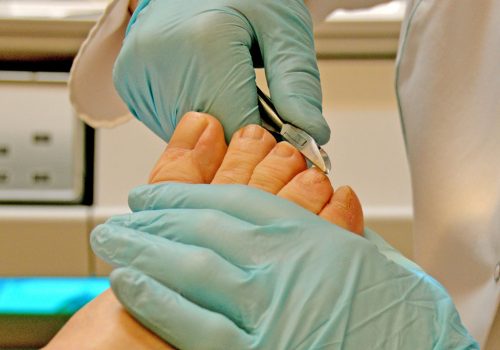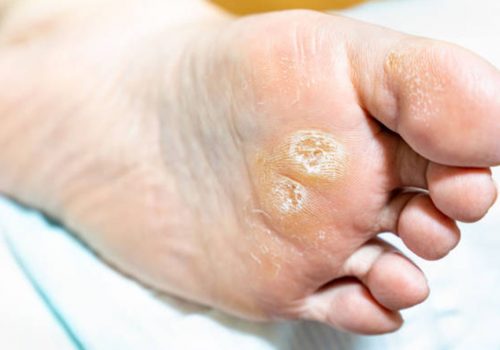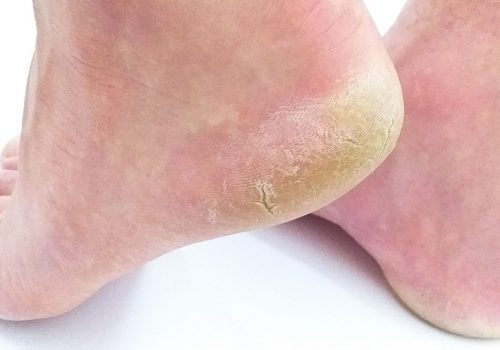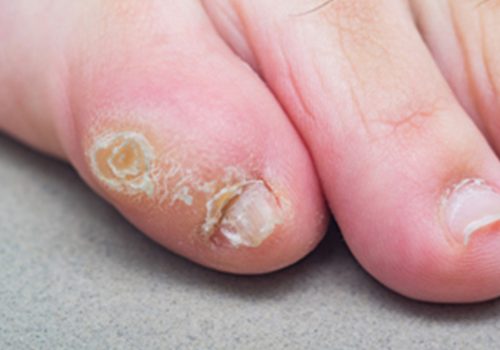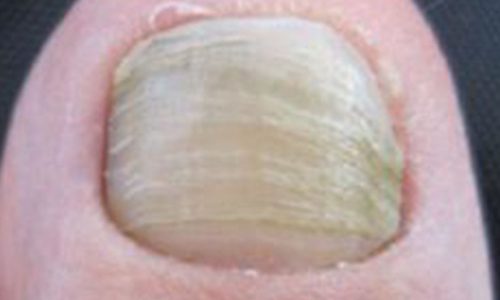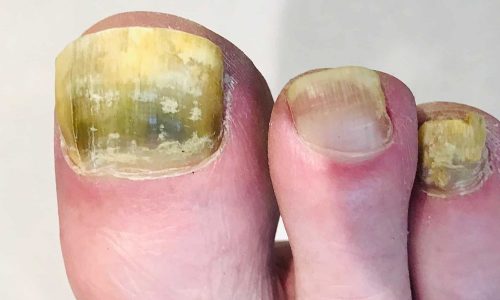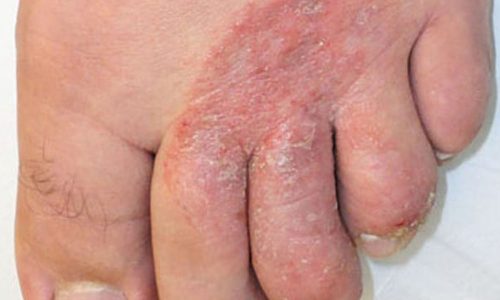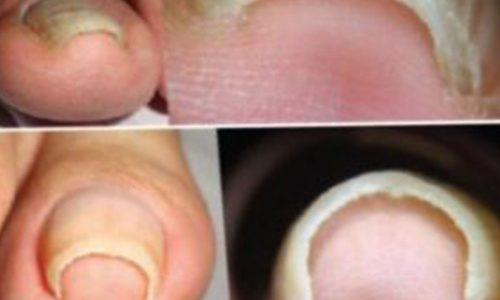Faversham Feet Services
Nail Cutting
It’s a well-known fact that the older we get, the further away our feet seem to get!
If you find you’re having difficulty reaching down to cut your own nails or you’re cutting your toes trying to manage them with the garden shears then it’s time to get some help!
Correct nail cutting is essential to prevent problems occurring such as ingrown toenails or cuts to the skin so if you’re finding it hard to cut them for reasons such as impaired vision or mobility issues then it’s important to get someone else to do it for you.
Callus
A callus is a build up of hard skin, most commonly found over areas of increased friction such as around the heels and to the sides of the big and little toes. Left to build up, callus can become increasingly painful to walk on and can cause pressure to the underlying structures of the skin causing bleeding beneath the skin (known as extravasation). The pain can cause the sufferer to walk with an altered gait leading to further problems.
Callus is removed quickly and easily by sharp debridement (scalpel) method with no excessive filing or cheese graters!
Cracked Heels
Cracked heels are caused by excessive friction around the heel, resulting in heavy callus which can split and bleed and be extremely painful. They are usually the result of poorly fitting footwear… Flip-flops are not your friends!!!
As with other callus, we use sharp debridement to remove the hardened skin, leaving your feet supple again. You will be given advice on appropriate footwear and the use of urea-based creams to return the skin to its much happier, natural, condition.
Corns
Corns are defined areas of hard skin found over points of excess pressure. They are often found on the tops of ‘hammer toes’, the sides of the little toes, or on the ball of the foot as the result of pressure from footwear.
We use sharp debridement (scalpel) techniques to remove the corn and can provide padding and devices to relieve pressure and advice to prevent them from reoccurring.
Please, please, please… DO NOT be tempted to try medicated corn removal plasters. They contain an acid which causes a chemical burn to the skin and does more harm than good most of the time.
Thick Nails
As we age, our nails are exposed to repeated trauma. Our toes love nothing more than to try to make close friends with door frames, bed posts, coffee tables, heavy jars and horse’s hooves. As a result of all this trauma, our nails can often become permanently damaged and grow very thick which can make them unsightly and very difficult to cut.
Thick nails are no match for us, we can cut through anything! We can also thin down your thick nails to give them a far more ‘normal’ shape and appearance.
Fungal Nails
Despite the plethora of treatments available to buy, all promising miracle results in completely impossible timescales, fungal nails can be very difficult to treat.
Every person is different and fungal nails require a tailored treatment plan to be effective. We will work with you to find the most appropriate treatment and will liaise with your GP to request medication if required.
Skin Infections
Conditions such as Athletes Foot can be embarrassing and persistent but with the correct treatment and advice, your condition can be treated and kept at bay. There is an abundance of treatments available in shops and pharmacies, most of which can be effective if used consistently and correctly, however, it’s especially important to follow good advice around foot hygiene.
We can work with you to find the best treatment options for you.
Ingrowing Toenails
Ingrowing toenails can be excruciatingly painful, often becoming infected and requiring antibiotic treatment, and in some case, nail surgery. If a piece of nail has become embedded in the skin, then it is likely that antibiotics will not solve the issue and the infection will keep reoccurring.
Early intervention at the first sign of an ingrown toenail can prevent infection occurring and provide instant pain relief.
If you are suffering from an ingrown toenail, even if you feel there is an infection present, please get in touch and we will aim to see you as quickly as possible to remove the ingrown spike non—surgically.
If we feel the problem has gone too far or the pain is such that you would need an anaesthetic, then we will refer you to a podiatrist, (either privately or via the NHS) to discuss surgical options.
The Feet in Diabetes…
Diabetes is one of the most common chronic diseases in the UK and its prevalence is increasing.
At the time of writing, in 2022, there are currently over 4 million confirmed cases with a suspected additional 1 million of unconfirmed cases and the number is set to continue rising, expected to reach over 5 million confirmed cases by 2025.
The risk of foot problems in people with diabetes is increased, largely because of either diabetic neuropathy (nerve damage or degeneration) or peripheral arterial disease (poor blood supply due to diseased large- and medium-sized blood vessels in the legs), or both.
Peripheral arterial disease affects 1 in 3 people with diabetes over the age of 50, and can also increase the risk of heart attack and stroke. The life expectancy of people with diabetes is shortened by up to 15 years, and 75% die of macrovascular complications.
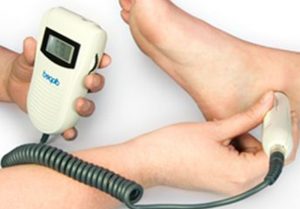 Foot complications are common in people with diabetes. It is estimated that 10% of people with diabetes will have a diabetic foot ulcer at some point in their lives. A foot ulcer can be defined as a localised injury to the skin and/or underlying tissue, below the ankle, in a person with diabetes.
Foot complications are common in people with diabetes. It is estimated that 10% of people with diabetes will have a diabetic foot ulcer at some point in their lives. A foot ulcer can be defined as a localised injury to the skin and/or underlying tissue, below the ankle, in a person with diabetes.
For this reason, regular footcare is essential for all diabetics. Prevention is always better than cure and a qualified foot professional (foot health practitioner, chiropodist or podiatrist) is trained to spot the early warning signs which can indicate more serious problems.
With early intervention and management, the majority of diabetic foot ulcers are entirely preventable.
At Faversham Feet, we are trained and insured to treat diabetic feet. Clients with diabetes will be given a neurovascular assessment, similar to that provided by their diabetes specialist nurse, which will help us to assess their risk factors and monitor and manage their feet accordingly.
Diabetes UK (www.diabetes.org.uk) are an excellent source of information and advice around managing your feet in diabetes but if you have any questions, please feel free to contact us and always make sure you are having your feet checked by a professional at regular intervals.
Verrucae / Warts…
What is it?
Verruca Pedis (VP) is a type of benign skin lesion arising from a viral infection of the epidermis. Verrucae are synonymous with ‘warts’ and can occur on any area of the skin, though they are most commonly found on the hands and feet. When these appear on the weight-bearing surfaces of the feet they can develop an overlying callosity which can make them painful. They are otherwise a harmless skin lesion.
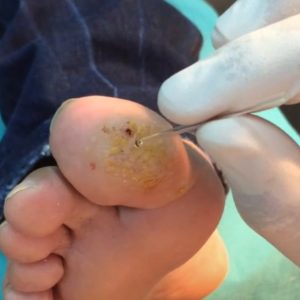 What causes it?
What causes it?
The virus responsible for verrucae is the Human Papilloma Virus. There are many strains of this virus, but the three most common for causing verrucae and warts are HPV 1, 2 and 4 (there are others too). Thankfully, all of these strains are the benign subtypes though some cancers can resemble viral warts. As such, it is always important to have suspected verrucae investigated by a podiatrist/FHP.
HPV is ubiquitous. Strains causing verrucae and warts are found commonly on the hands of most people as well as many inanimate objects that we come into contact with each day. However, it is a weak virus insomuch as it is easily washed off of the outer layer of the epidermis as well as easily washed off of inanimate objects. The strains responsible for verrucae and warts only cause infection when they get access to the base layer of the epidermis. It is because the cells that they target for viral replication are metabolically active keratinocytes which are found at this base layer. As the epidermis provides a very robust barrier to most things, it takes a breach in the outer layers of the epidermis to allow the virus to access these metabolically active active keratinocytes to cause infection. Thus, if the skin is excessively wet or macerated or has been subject to micro tears, the risk of infection increases (this is why swimmers are particularly susceptible to verrucae).
Once at the site, provided the individual does not have immunity to the infection, the latent phase of the infection (i.e. incubation) is typically quite slow and is estimated to be anywhere between 6 weeks and 8 months. This is because the viral replication with the affected keratinocytes is slower and less directly cell-damaging relative to other viral infections. The process of virus replication produces proliferation of prickle cells which alters the character of the epidermis, resulting in the visible warty appearance of the verrucae. The nature of the slow viral replication, the epidermis being out of reach of the body’s immune system and the ability of the virus to evade detection through localised cytokine suppression means that verrucae and warts can be a persistent skin lesion that struggles to respond to a range of treatment options. The way in which lesions will typically disappear is through ‘spontaneous resolution’ – in other words the body eventually identifies its presence and mounts the necessary immune response.
How do I treat it?
Often treatment is not indicated. In many instances the nature of the lesion needs to be carefully explained to the patient and/or parent/carer. On the back of that discussion, unless the verruca is painful or causing other considerable concerns, it is often left alone to allow the body to eradicate the infection in time. However, instances where the verruca is proving problematic in either the form of pain or psychosocial distress, some treatment options may be considered. These include:
• Scalpel Debridement
A simple reduction in the hard skin build-up over the lesion. This is not a treatment aimed at resolving the lesion so much as it is aimed at reducing callus-associated discomfort. This will typically require repeating regularly.
• Occlusion
The use of occlusive tape (i.e. zinc oxide tape) to ‘lock in’ moisture at the skin surface serves to macerate the lesion. This reduces the dryness and hardness of the lesion which is pain relieving . There is also some evidence that as maceration is a type of controlled wound state, this may induce an inflammatory response which could expedite the immunological response to resolving the lesion.
• Verrutop
Verrutop is a professionally administered, non-caustic, treatment designed to break down the viral material in the verrucae and encourage them to detach. Clinical studies with Verrutop show that up to 90% of verrucae clear within 6 fortnightly treatment cycles. Verrutop is safe and painless and can be used in adults and children aged 6 years and above.
Book now for Verrutop Treatment at Faversham Feet. Click Here!
• Caustics
Different acids have historically been used to treat verrucae with varied success. These cause a chemical burn and keratolytic response to the affected tissue. This does reduce some of the callosity at the site and may induce an inflammatory reaction, in turn potentially expediting the immunological response. However, there are risks to consider and this treatment is more cautiously considered for individuals whose feet are deemed ‘at risk’.
• Cryotherapy
The use of profoundly cols temperatures to ‘freeze’ the lesion also remain a mainstay of verruca treatment. Causing the lesion to freeze and potentially burst may expose the live virus to parts of the immune system with the blistered and often painful response to the procedure invoking an immune response.
We have a local cryotherapist, Amy Garske, at Syndale. You can find more information at www.cryotherapybyamy.co.uk
• Faulkner’s Needling
This is a procedure performed under a local anaesthetic where a hypodermic needle is advanced through the lesion many, many times to create a wound and to expose the virus to sub-dermal tissue to invoke an immune response.
We can recommend a podiatrist, Lucy Wilcox, offering needling at Easy Feet Podiatry in Ashford. You can find more information at www.easyfeetpodiatry.co.uk
• Surgery
For some cases, surgical excision of the lesion is necessitated. However, this does not typically result in an immunological response to eradicate the lesion making someone susceptible to future development of a verruca.

